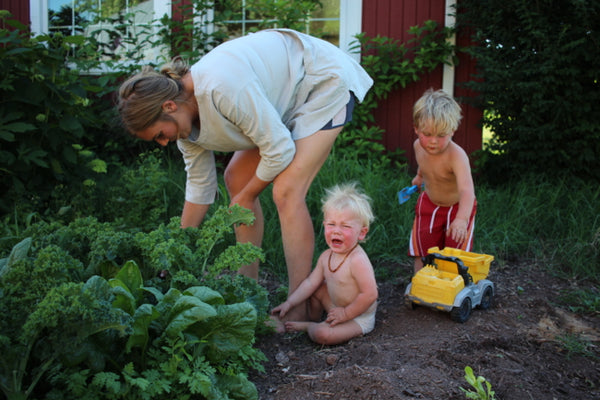Slow Living: Reclaiming Our Time & Living Our Most Authentic Life
So what is “slow living”?
Why are people talking about slow living so much these days, and why is it important?
We’ve been exploring this a lot over the last couple of years, and we’ve been working all winter on the Lady Farmer Guide to Slow Living with the goal of sharing what we’ve observed and learned and to invite all of our followers to the discussion. Here are a few excerpts from the introduction to give you a taste of what’s to come. We’d love to hear from you with ideas, questions or comments on this evolving topic.

Slow living means many different things to different people, no doubt, and we won’t attempt a definitive explanation here. What we offer are observations for reflection and discussion, practical suggestions, information sharing and perhaps some gentle guidance stemming from our own thoughts and experience as residents of this planet who are inclined to ponder such things.
Our own understanding of slow living has to do, quite simply, with making conscious choices about how we live our lives. It’s about paying attention to how we spend our time, money and resources, and taking a step back from the industrialized systems that have come to provide our daily needs. It’s also about observing our own consumer habits, where and how they intersect with quality of life and perpetuate an unsustainable paradigm…

The difference is in how we choose to spend it…
In recent decades, time and money are two things that consumers want to save over anything else, giving rise to the attraction of convenience, the almighty “bargain,” fast food and fast fashion. How and when these perceived shortages became such a driving force in our society is probably beyond the scope of this discussion. The truth is that we have the same amount of time as did our ancestors and our grandparents. The difference is in how we choose to spend it…
As we have come to understand it, the slow living choice to feed and clothe ourselves closer to the source doesn’t necessarily take less time or work or money. In some instances, it might take more.
From the standpoint of growing food, when we’re planting and weeding the garden plot and trying to keep it all going through drought, and at the end of the summer when our cup runneth over with wonderful things from the garden that need to be harvested, prepared and preserved— life is not “slow,” as in “leisurely.” There is a huge amount of effort and energy involved. Yet, it is the choice we make over driving to the supermarket and buying packaged and processed food that could be on the table and ready to eat in no time.
We call that slow living.
Likewise, the slow living choice for clothing that has not been produced at the expense of the land, our water, another human’s well being and our own health certainly will cost more in terms of dollars and cents. The reality is that clothes that are made from responsibly sourced materials and well-paid workers are rare, expensive and simply not accessible to many within the current paradigm. But awareness is free. Anyone can learn that there are other options to the prevailing system of oppression, pollution and poisons and that it can be changed if enough of us refuse to participate.
Thomas Berry, cultural historian and twentieth-century visionary sums up what he believes to be the “Great Work” of humankind as we move into the new century. It is “to carry out the transition from a period of human devastation of the Earth to a period when humans would be present to the planet in a mutually beneficial manner.”

We can do this, each and every one of us, in small ways, in seemingly minuscule decisions, in the example we set for those around us. We don’t have to be loud or preachy, or “holier than thou.” No single behaviour is going to be right for everyone. We all got here together even if we came from a thousand different directions. The way out is with individual changes, but the ultimate paradigm-shifting changes will be collective.
Our goal in exploring the idea of slow living is to identify where we have become separated from “the hand that feeds us,” so to speak, and to find our way back to a right relationship with the true source of our nurturance. We want to see ourselves apart from mass production and consumption, hear our own voice inside the noisy torrent of information and seek out the things we truly value. In that space, perhaps, is the essence of slow living, where we reclaim our allotted time on the planet and create our truly authentic lives.

Want more? Join our mailing list to receive news & more articles like this one!
Don’t worry, we won’t bug ya…just really good content you don’t have to dig for!













